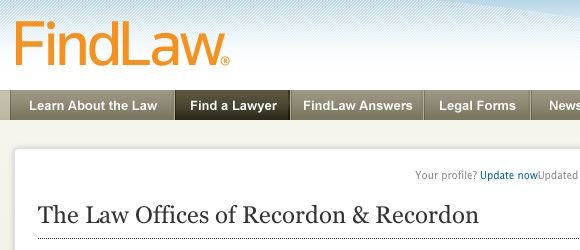5 Industries With Surprising Content Theft Problems
 When it comes to content theft, there are a lot of industries that we expect to have rampant problems with content misuse.
When it comes to content theft, there are a lot of industries that we expect to have rampant problems with content misuse.
Pretty much anything you’d find in your spam folder would seem like a good candidate for content misuse, especially by spam bloggers. This includes topics like pharmaceuticals, pornography, SEO services, etc.
However, in talking with other content creators in a variety of industries, the problem of content misuse online is not limited to traditional spam-friendly keywords. In fact, many industries you wouldn’t expect problems from actually have rampant issues of content misuse including plagiarism of marketing copy, unauthorized reuse of blog posts, copied images and more.
WIth that in mind, here are just five of the industries I’ve had dealings with as part of my copyright and plagiarism consulting work that have surprised me with the amount of infringement sites within it have seen.
1. Law Offices / Legal Services
If there were one group that you would expect to know better than infringe copyright, it would be lawyers. Unfortunately, history has sown that to be not the case.
Plagairism and content theft by law offices is widespread and even gains semi-regularly media attention due to it’s nature.
Why it Happens: Law offices are often times just one or two attorneys and, maybe a paralegal or receptionist. In short, they are very small businesses without a lot of expertise in content writing and website development. Many contract out to third parties, often on a very small budget and other times attempt it themselves with no real expertise.
To further the problem, copyright is a very niche area of law and many lawyers don’t know a great deal about it, even as they are violating it.
2. Review Sites
Review sites run the gamut in terms of the topics they cover from candy sites, like long-time reader Cybele May, to electronics and beyond. However, nearly every review site seems to have a significant problem with its content being plagiarized, including sites built off of reader reviews.
Why it Happens: The problem is simple, for every product for sale one of the most popular search terms is for a reviews of it. Spammers have seized upon this as a great way to target popular but less-competitive keywords.
However, the problem is compounded by the fact both positive and negative reviews are often copied with and without attribution by people wanting to make a point about the product. Also, images taken of products for the review are also often lifted instead of using provided promotional photographs or taking new ones.
3. Financial Services
Though some financial services firms are already somewhat predictable targets for content theft with spam-friendly keywords such as mortgage and credit card being within the industry, the issue runs much deeper including a great deal of B2B misuse, in particular with smaller businesses.
Why it Happens: Financial services firms often have the same problem as law firms. They are often small businesses, just one or two people, and lack any real Web /copyright expertise. This includes accountants, debt consultation firms and more.
However, depending on the particular type of business, the barrier to entry may be much lower than with a law firm from a legal standpoint. This can open the floodgates for almost anyone to participate in the field, including more than a few plagiarists.
4. Gaming
The rapid rise in popularity of gaming has opened a floodgate to sites and blogs that want to talk about gaming and tap that new audience. It’s also created a slew of new companies, including many small startups, aimed at making, promoting, distributing, reviewing and talking about video games.
With this explosion has come a swath of allegations of content misuse, plagiarism and copyright infringement, ranging from plagiarism in video games themselves to re-writing reviews.
Why it Happens: I talked more about the reasons for the spike in plagiarism in video games in my previous article, but the issue goes well beyond just the games themselves. Already-embattled Ocean Marketing was hit with a series of plagiarism allegations and plagiarism among video game blogs also appears to be on the rise.
Simply put, the growth and expansion of the industry attracts new businesses of all types, good and bad, creating a climate ripe for content misuse.
5. Essay Mills
The old saying “There is no honor among thieves” holds true when it comes to essay mills. Students often turn to essay mills to get custom-written assignments that won’t be detected by traditional plagiarism checkers. However, as one survey showed, those essays are often plagiarized themselves from various sources. At least one such case of plagiarism ended up in a lawsuit.
Why it Happens: The problem is simple. For the price paid and the time given there is simply no way a paper mill can churn out a high-quality, plagiarism-free paper. Either the mill has to cheat, the quality has to be gibberish or both.
Yet just another reason why essay mills are a bad move for students looking for an easy way out.
Bottom Line
All in all, if you think plagiarism or content misuse issues are limited to a few sectors and you don’t have to think about it, you’re probably wrong. Remember, I got my start in this industry as a poet, a field of writing that highly values originality, so pretty much any industry and any site can be victimized by bad actors.
How you respond is up to you, but it’s importnat to understand that the risk is out there, that it can affect you and that there are ways to respond if you wish.
In the end, always remember that no industry is safe from plagiarism and content theft issues, so it pays to take a look at your site and your content specifically as every creator is different and every site is in a different position.
Panic Button Photo Credit: BigStockPhoto.com
Want to Reuse or Republish this Content?
If you want to feature this article in your site, classroom or elsewhere, just let us know! We usually grant permission within 24 hours.
